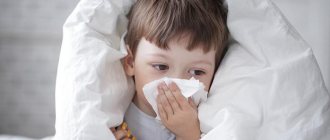Sleep is a physiological phenomenon during which a person does not control himself. He may change positions frequently, snore, or sleep with his mouth open. Many people mistakenly believe that sleeping with your mouth open does not pose any danger. Is it so? Firstly, this phenomenon is not pleasant. When loved ones sleep with their mouths open, they snore, their breathing quickens, and they drool. And it is unpleasant for the person himself to hear from people that his mouth is open in a dream. Secondly, it can be not only a habit, but also a signal that something is wrong with the body.
Weakness of the orbicularis facialis muscle
Weakness of the orbicularis facialis muscle is the main reason why older people sleep with their mouths open. It is also present in young children under 2 years of age. Their orbicularis facial muscles have not yet been trained. But if this problem does not disappear with age, then it needs to be addressed urgently. It can lead to malocclusion.
To avoid weakness of the orbicularis facial muscle, you need to consult a specialist. Another effective method is to perform facial exercises and massage.
Causes
The disease develops and progresses under the influence of various factors. Most often, the disease is observed with neurological disorders and increased psycho-emotional stress. Less commonly, the disease occurs in chronic or acute gastrointestinal disorders (gastritis, gastric and duodenal ulcers), helminthic infestations, and infectious lesions (especially in children of preschool and primary school age).
Neurogenic
Grinding is often detected if the functioning of the central or peripheral nervous system is disrupted. There are also other symptoms, for example, headache, insomnia, so-called sleepwalking. Sometimes enuresis occurs, epileptic seizures and tremors of the limbs appear.
Psychological
Most doctors, including dentists, are of the opinion that bruxism is detected during psycho-emotional instability. At the same time, strong emotions can be caused by both severe stress, frustration, any unpleasant event, and a positive set of circumstances, which, it would seem, should not lead to teeth grinding at night.
During the day the patient experiences emotional swings. He either laughs and rejoices, or falls into despondency and complete despair. Perhaps unpleasant things that have already happened in the distant past have not been forgotten.
Dental
Researchers in the field of dentistry claim that a disease such as bruxism occurs due to pathologies in the structure and functioning of the dental system. Regardless of age, the disease is diagnosed in persons with:
- bite defects;
- pathological arrangement of dental units;
- violations of the integrity of the series;
- crowding of crowns, overcomplexity;
- incorrectly installed prostheses;
- pathologies of the temporomandibular joint.
The chewing load is not distributed as nature intended. The muscles become overstrained and do not work properly.
Osteopathic
This theory is supported by a much smaller number of researchers. Its essence lies in the fact that the muscles contract due to attempts by the neuromuscular system to suppress the blockage of the cranial sutures and restore the craniosacral rhythm. This phenomenon is observed during complicated childbirth, which results in birth injuries, malocclusions, problems with the spine, and diseases of the cervical spine.
Dental diseases
Indeed, teeth have nothing to do with the respiratory organs, but they still force you to keep your mouth open.
This condition can lead to an increased risk of germs and poor health. In addition, it can cause dental diseases and bad breath. To solve this problem, people need to visit the dentist's office at least twice a year. In addition, it is necessary to maintain oral hygiene (brush your teeth twice a day, use dental floss).
What to do?
First of all, you need to find out why you breathe through your mouth. Common causes of difficulty in nasal breathing include, for example, allergic rhinitis, enlarged adenoids, deviated nasal septum, and apnea. Also, temporary difficulties with nasal breathing occur due to a common cold.
If you know the reason why you breathe through your mouth, then you need to try to get rid of it. In the case of a common runny nose and nasal congestion, vasoconstrictor drops can be a temporary solution to the problem, however, it should be remembered that they cannot be dripped continuously for more than a week. Otherwise, addiction may occur and you will not be able to breathe normally without drops. People with allergies are often prescribed nasal drops containing hormones, which also helps improve nasal breathing. However, the main treatment should be to eliminate allergens as much as possible. In the case of a deviated nasal septum, surgical treatment is usually indicated. Enlarged adenoids and apnea are also treated surgically, but there are other ways to combat these diseases.
When children drool in their sleep, for most it only causes touching smiles. The reasons are clear - in infants, increased salivation is caused by teething, and older children, having worked hard during the day, sleep so soundly that the muscles supporting the jaws completely relax, and a thin stream of liquid flows freely from the mouth.
For adults, the picture does not look so touching, and waking up on a pillow wet from your own saliva is not very pleasant. In addition, it is completely unclear why an adult drools during sleep and whether it is possible to somehow combat such an unaesthetic phenomenon.
Neurological diseases
Sleeping with an open mouth is observed in people suffering from neurological diseases. They can also occur in a hidden form. The main symptoms of neurology include increased salivation and sagging of the tip of the tongue.
How to fix this problem? To do this, it is necessary to regularly monitor the state of the nervous system. In addition, it is recommended to avoid nervous breakdowns, stress, and depression.
The reasons for sleeping with your mouth open are different. To get rid of this problem, you should consult a doctor in time. Only a specialist can prescribe the correct treatment method! It is important to remember that sleeping with your mouth open is not only an aesthetic problem. It may indicate that something is wrong with the body.
Inexpensive beds, mattresses and mattress covers from the online store Magic of Sleep.
Top 6 ways to sleep with your mouth closed
Healthy people breathe through their nose. But if your nose is stuffy, you have an allergy or an acute respiratory viral infection, then nasal breathing is difficult. However, there are medical recommendations to eliminate the problem:
- If you have a runny nose and nasal congestion. In such a situation, drops with a vasoconstrictor effect will help. But doctors warn that medications should not be taken continuously. The course of treatment is a maximum of 7 days. Otherwise, addiction will occur.
- Allergy remedies. Often the way out of the situation is to prescribe medications with hormones. However, only a doctor prescribes such therapy and only as an auxiliary treatment in eliminating allergies.
- Surgical intervention for adenoids and apnea. These treatment methods are used in extreme cases, because... There are effective therapeutic methods.
- A method of focusing on breathing. When attending yoga courses, trainers teach proper breathing. The usefulness of concentrating on the quality of breathing allows you to eliminate an open mouth during sleep, reduces anxiety and stress levels. Daily practices during daylight hours allow you to fall asleep calmly and with your mouth closed.
- Sleep in comfort. At first glance, the method seems obvious. However, there are many factors that trigger mouth opening during sleep. For example, dirt and dust in the bedroom and an unclean bed are pathogenic factors. It is recommended to buy an air purifier and humidifier.
- Mouth guard or pacifier for adults. The device changes the position of the tongue and fixes the jaw in a closed position. Special jaw retainers in the form of facial bandages have also been developed.
Important! When the mouth is open, salivation decreases. As a result, the perception of taste sensations is disrupted, and problems arise in chewing and swallowing food.
If dry mouth is accompanied by pain, cracks in the mucous membranes and corners of the lips, then you should make an appointment with a therapist. The need is due to the fact that this may be a sign of a hidden disease of internal organs and systems.
It should be noted that getting rid of the problem is quite simple. It is worth devoting time and attention to this, and the quality of life will increase several times. And colleagues, friends and relatives will be doubly pleased to communicate if the interlocutor smells pleasant.
Find out if you have sleep apnea.
If you frequently wake up in your sleep, have trouble breathing, snore loudly while you sleep, or if you salivate excessively, you may have sleep apnea. Apnea causes your breathing to become shallow, almost unnoticeable.
- The risk of sleep apnea will be higher in people who smoke, have high blood pressure, and people with a predisposition to heart disease or stroke.
- Your doctor will be able to determine if you have apnea by doing some tests that will monitor your sleep.
Find out if your airway is blocked.
Drooling from your mouth may be a symptom of a blocked airway. Visit an ENT doctor to find out if you have any problems that affect your ability to breathe through your nose while you sleep.
Lose weight.
If you are overweight, you have a high chance of developing sleep apnea. More than half of the 12 million people in the United States who suffer from sleep apnea are overweight. Change your diet and start exercising regularly to achieve a healthy weight and reduce your neck circumference for easier breathing.
Conservative treatment of sleep apnea.
Apnea can be treated in a variety of ways, in addition to recommending weight loss. Those people who have been diagnosed with this should avoid drinking alcohol, sleeping pills, and try to get more sleep. To clear your nasal passages, use nasal sprays and saline nasal rinses.
Get mechanical therapy for sleep apnea.
The first thing prescribed to people suffering from sleep apnea is to undergo CPAP therapy (a mechanical method of creating constant pressure in the airways). Patients must wear a mask that forces air into the lungs through the nose and mouth while they sleep. The idea is to create the right amount of air pressure in the airways to prevent them from collapsing during episodes of sleep apnea.
Use a special mouth insert.
It will prevent your tongue from obstructing your airway and will push your lower jaw forward to further open it.
- Contact your surgeon.
People who have a deviated septum, enlarged tonsils, or an enlarged tongue may be good candidates for various surgical procedures.
- Somnoplasty. This procedure uses radio frequencies to shrink the soft palate at the back of the throat, thereby widening the airways.
- Nasal surgery consists of several procedures that can correct defects such as a deviated nasal septum.
- Tonsillectomy. During this procedure, enlarged tonsils that are obstructing the airway are removed.
- Surgery to advance the lower or upper jaws. During this procedure, the surgeon will move the jaw bones forward to create more space in the throat. This is a fairly intensive procedure that is reserved for only the worst cases of sleep apnea.
Pharyngoplasty. This is a procedure in which the soft tissue at the back of the throat is surgically removed to open the airway.
Our mouth is constantly moistened with saliva, and this happens for a reason. Saliva protects mucous membranes from the proliferation of harmful microbes. If we sleep with our mouth open, saliva evaporates, which leads to drying out of the oral mucosa. In such conditions, pathogenic microorganisms have room to roam! As a result, we are at greater risk of catching a cold.











